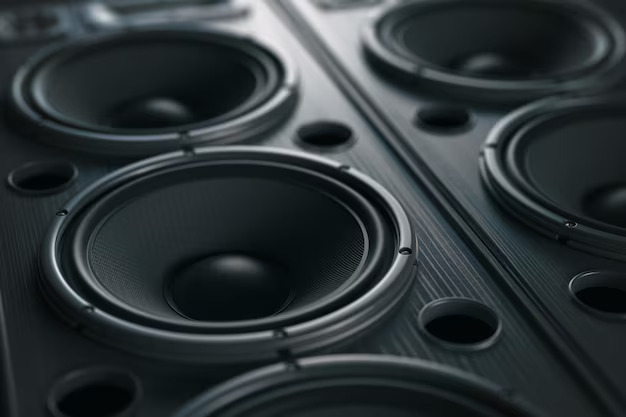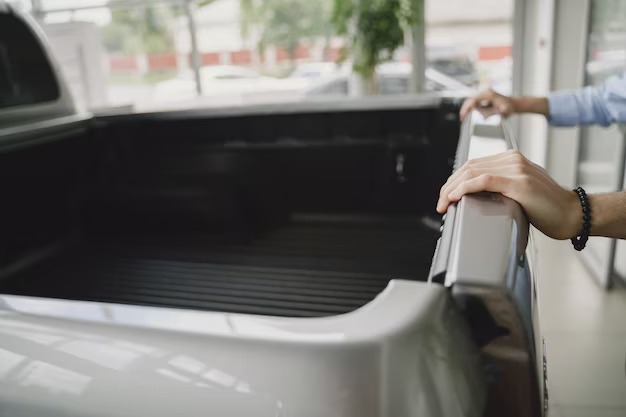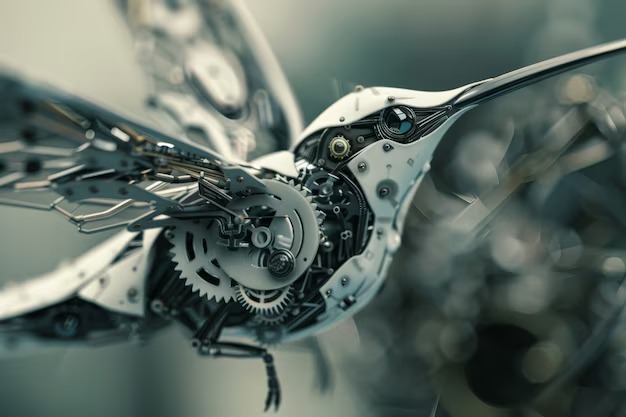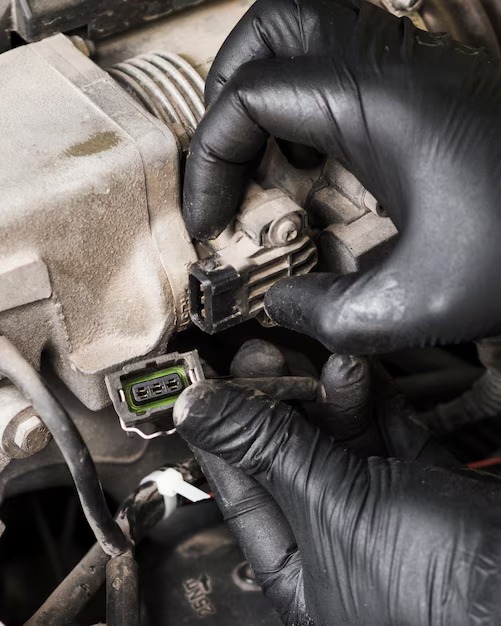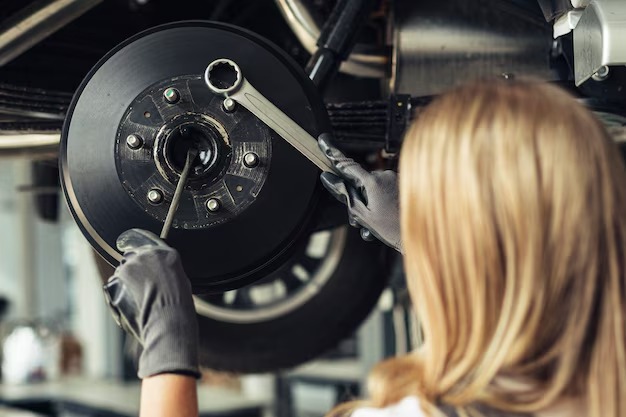How to Get Rid of Whining Noise From Speakers When Accelerating
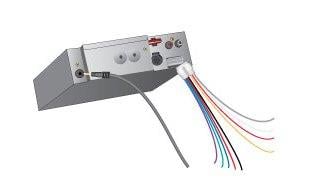
How to Get Rid of Whining Noise from Speakers When Accelerating
If you’ve ever experienced a whining noise coming from your car’s speakers when you accelerate, you’re not alone. This issue can be not only annoying but also distracting and, in some cases, even dangerous. So, what causes this whining noise, and more importantly, how can you fix it?
The most common cause of a whining noise from the speakers when accelerating is electrical interference. This interference can be caused by a variety of factors, including the alternator, a faulty ground connection, or even a bad radio or amplifier. Whatever the cause may be, the good news is that there are several steps you can take to eliminate or reduce the whining noise.
One of the first things you should check is the ground connection of your audio system. A poor ground connection can create electrical interference, which can result in a whining noise. Make sure that the ground wire is securely connected to a metal part of the car’s chassis, such as a bolt or screw. You may also want to consider adding a ground loop isolator to your system, which can help eliminate any interference.
Another common culprit behind the whining noise is the alternator. When the alternator is not functioning properly, it can generate electrical noise that is picked up by the car’s audio system. In this case, you may need to have your alternator checked and repaired or replaced, if necessary. Additionally, using high-quality shielded audio cables and power cables can help minimize the interference from the alternator.
In some cases, the issue may be with the actual radio or amplifier. If you’ve ruled out other potential causes and the whining noise persists, it may be time to have your audio system inspected by a professional. They will be able to diagnose the problem and make any necessary repairs or replacements.
In conclusion, a whining noise from the speakers when accelerating can be a frustrating issue. However, by checking the ground connection, addressing any alternator problems, and seeking professional help if needed, you can effectively eliminate or minimize the noise. Remember, a quiet and distraction-free car ride is not only more enjoyable but also safer. So, don’t hesitate to take action and say goodbye to that annoying whining noise!
Identifying the Whining Noise
When you hear a whining noise coming from your speakers while accelerating, it can be quite annoying and frustrating. However, it’s important to diagnose the problem accurately in order to fix it effectively. Here are some steps to help you identify the source of the whining noise:
- Check all cables and connections: Start by inspecting all the cables and connections that are connected to your speakers. Make sure they are securely plugged in and not loose.
- Isolate the noise: Try to determine if the noise is coming from all the speakers or just one. Play some audio through different speakers and see if the noise persists in a specific speaker.
- Test different audio sources: Connect different audio sources like a CD player, phone, or another device to your speakers and see if the whining noise is still present. This will help you determine if the noise is specific to a certain audio source.
- Move the speakers: If possible, move the speakers to a different location in the room and see if the whining noise changes or disappears. Sometimes, electrical interference from nearby electronics can cause the noise.
- Check for ground loop: A ground loop is a common cause of whining noise in speakers. To check for a ground loop, disconnect all audio sources and listen for the noise. If it’s still present, use a ground loop isolator to eliminate the interference.
By following these steps, you can identify the source of the whining noise and take appropriate measures to fix the issue. If you are unable to determine the cause or if the noise persists, it’s recommended to consult a professional audio technician for further assistance.
Possible Causes of the Noise
When experiencing a whining noise from the speakers when accelerating, there can be several possible causes:
1. Electrical Interference
One of the common causes of a whining noise is electrical interference. This interference can come from various sources, such as the alternator, ignition system, or even the power cables running close to the audio cables. When the engine revs up, it can create fluctuations in the electrical system, causing a whining noise to be picked up by the speakers.
2. Grounding Issues
Another possible cause of the noise is grounding issues. If the speakers or the audio system are not properly grounded, it can result in unwanted noises. This can happen when there are loose or corroded connections between the audio system and the vehicle’s chassis. It is important to ensure that all grounding connections are clean and secure.
3. Engine Noise Coupling
The speakers can also pick up engine noise due to engine noise coupling. This happens when the engine noise is directly transmitted to the audio system through the wiring or other components. It can occur if there are damaged or poorly shielded cables, or if the audio system is not isolated from the engine vibrations.
4. Amplifier Issues
If the whining noise is only present when an amplifier is being used, the issue may lie with the amplifier itself. Faulty or low-quality amplifiers can introduce noise into the audio system. It is advisable to check the amplifier connections and consider using a higher-quality amplifier if needed.
5. Radio Frequency Interference
Radio frequency interference (RFI) can also cause whining noises in speakers. RFI can be caused by nearby radio transmitters, cell phones, or other electronic devices. It can be minimized by using shielded audio cables and keeping the audio system away from potential sources of RFI.
| Cause | Solution |
|---|---|
| Electrical Interference | Check the alternator, ignition system, and cable routing for potential sources of interference. Consider using noise filters or shields to minimize the noise. |
| Grounding Issues | Verify the grounding connections and ensure they are clean and secure. Repair or replace any damaged or corroded connections. |
| Engine Noise Coupling | Inspect the wiring and connections for any damage or poor shielding. Consider using noise-canceling devices or isolating the audio system from engine vibrations. |
| Amplifier Issues | Check the amplifier connections and consider using a higher-quality amplifier if necessary. |
| Radio Frequency Interference | Use shielded audio cables and keep the audio system away from potential sources of RFI. |
Checking the Speaker Connections
One of the first things you should check when experiencing a whining noise from your speakers while accelerating is the speaker connections. Loose or faulty connections can cause interference and result in the whining sound.
Here are the steps to check the speaker connections:
Step 1: Inspect the Speaker Wires
Start by visually inspecting the speaker wires to ensure they are securely connected. Make sure there are no loose or damaged wires that could be causing the whining noise. If you notice any issues, gently reconnect or replace the affected wires.
Step 2: Check the Speaker Terminal Connections
Next, examine the speaker terminal connections. These are the points where the speaker wires connect to the speakers themselves. Ensure that the terminals are tight and secure. Loose terminals can cause poor electrical connections and result in unwanted noise.
| Speaker | Connection |
|---|---|
| Left Front | Tightly connected |
| Right Front | Tightly connected |
| Left Rear | Tightly connected |
| Right Rear | Tightly connected |
Make sure to tighten any loose connections and re-test your speakers to see if the whining noise has been resolved. If the issue persists, you may need to consider other troubleshooting steps or seek professional assistance.
Troubleshooting Grounding Issues
One possible cause of whining noise from speakers when accelerating is grounding issues. Grounding is crucial in any electrical system to ensure proper functioning and to minimize interference. Here are some steps you can take to troubleshoot grounding issues:
1. Check the Ground Connection
Start by inspecting the ground connection of your audio system. Ensure that the ground wire is securely attached to a metal part of the vehicle’s chassis. Check for any loose or corroded connections and clean or tighten them as needed. A poor ground connection can lead to electrical noise.
2. Test the Ground Quality
Use a multimeter to test the quality of the ground connection. Set the multimeter to the resistance or continuity mode and touch one probe to the metal part of the vehicle’s chassis where the ground wire is attached, and the other probe to the ground wire itself. A good ground connection will show near-zero resistance or continuity. If the reading is high or fluctuating, there may be an issue with the grounding.
3. Inspect Additional Grounding Points
Some audio systems require additional grounding points, especially if you have installed aftermarket equipment. Check the manufacturer’s instructions and ensure that any additional grounding points are properly connected. This could include grounding the amplifiers, head units, or any other audio components.
Note: It’s important to follow the manufacturer’s recommendations when grounding audio equipment, as different systems may have specific grounding requirements.
By troubleshooting grounding issues, you can address one of the potential causes of whining noise from speakers when accelerating. However, if the problem persists, it’s recommended to consult a professional audio technician for further assistance.
Addressing Electrical Interference
Electrical interference can often be the cause of whining noise coming from speakers when accelerating. Here are some steps you can take to address this issue:
- Check the grounding of your car’s electrical system. Make sure all ground connections are secure and free from corrosion. An inadequate ground connection can introduce electrical noise into the audio system.
- Inspect the wiring of your audio system. Look for any loose or frayed wires that could be causing interference. Repair or replace any damaged wiring.
- Consider adding a noise filter or suppressor to your audio system. These devices are designed to reduce electrical interference and can often help eliminate whining noises.
- Ensure that the audio cables connecting your head unit to the amplifier are shielded. Shielded cables can prevent outside electrical signals from affecting the audio quality.
- Turn off any electronic devices that could be causing interference. Devices such as cell phones, GPS units, or radar detectors can sometimes interfere with the audio system.
- Install a dedicated power line for your audio system. Running a separate power line can help reduce the chances of electrical interference from other components of your car’s electrical system.
By following these steps, you should be able to address any electrical interference causing whining noise from your speakers when accelerating. If the issue persists, it may be necessary to consult a professional car audio technician for further assistance.
Consulting a Professional
If you have tried all the troubleshooting methods mentioned above and are still experiencing a whining noise from your speakers when accelerating, it may be time to consult a professional. An audio technician or a car audio specialist can better diagnose and repair any issues with your car’s audio system.
Before visiting a professional, it’s a good idea to gather information about your car’s make, model, and audio system, as well as any specific details about the noise you are experiencing. This will help the technician in understanding the problem and finding a solution more efficiently.
A professional will have the necessary tools and expertise to analyze the audio system and identify the root cause of the whining noise. They may need to conduct a thorough inspection of the wiring, connectors, and components of your car’s audio system to pinpoint the exact issue.
Once the problem has been identified, the professional will be able to recommend the most appropriate course of action to fix the whining noise. This may involve repairing or replacing damaged components, adjusting settings, or installing additional noise filtration measures.
Choosing the Right Professional
When selecting a professional to consult for your audio system issues, it is important to choose someone with experience and expertise in car audio systems. Look for technicians who have a good reputation and positive customer reviews.
Consider seeking recommendations from friends, family, or online forums for car enthusiasts. They may be able to suggest reputable professionals in your area who have successfully resolved similar audio system problems.
Cost and Timeframe
The cost of consulting a professional and fixing the whining noise from your speakers may vary depending on the severity of the issue and the specific repairs needed. It’s advisable to ask for a cost estimate and timeframe before authorizing any work to avoid any surprises.
Keep in mind that addressing audio system issues may take some time, especially if replacement parts need to be ordered or if the problem is particularly complex. Be prepared to leave your vehicle at the professional’s workshop for a certain period, if necessary.
| Pros of Consulting a Professional | Cons of Consulting a Professional |
|---|---|
| Expert diagnosis and repair | May be more expensive than DIY methods |
| Access to specialized tools | Potential wait time for repairs |
| Possibility of long-term solution | Inconvenience of leaving the vehicle at a workshop |
Overall, consulting a professional is a recommended course of action if you have exhausted all other troubleshooting methods and are unable to resolve the whining noise from your speakers when accelerating. They will have the necessary skills and resources to diagnose and fix the issue, ensuring optimal audio quality in your car.


